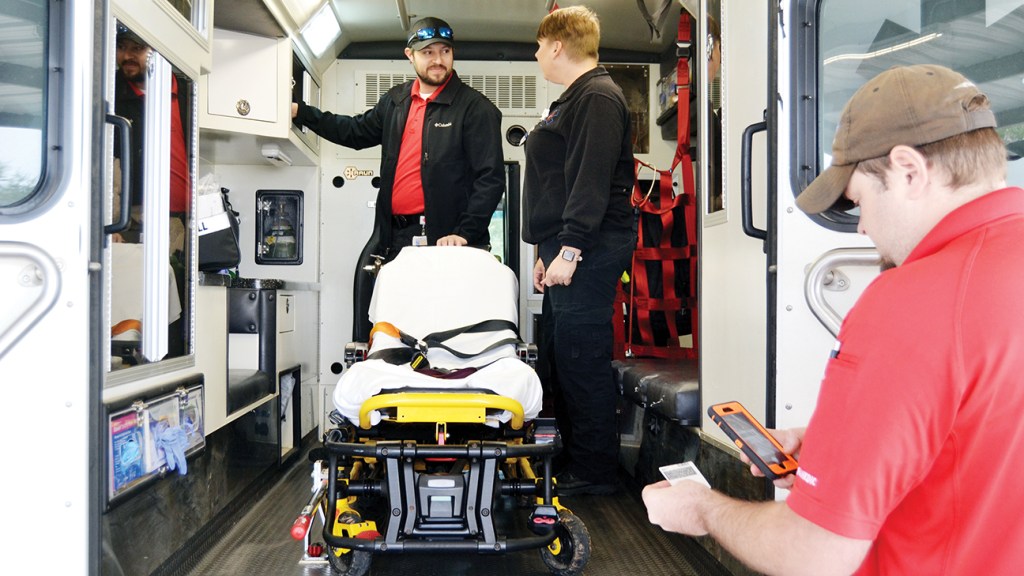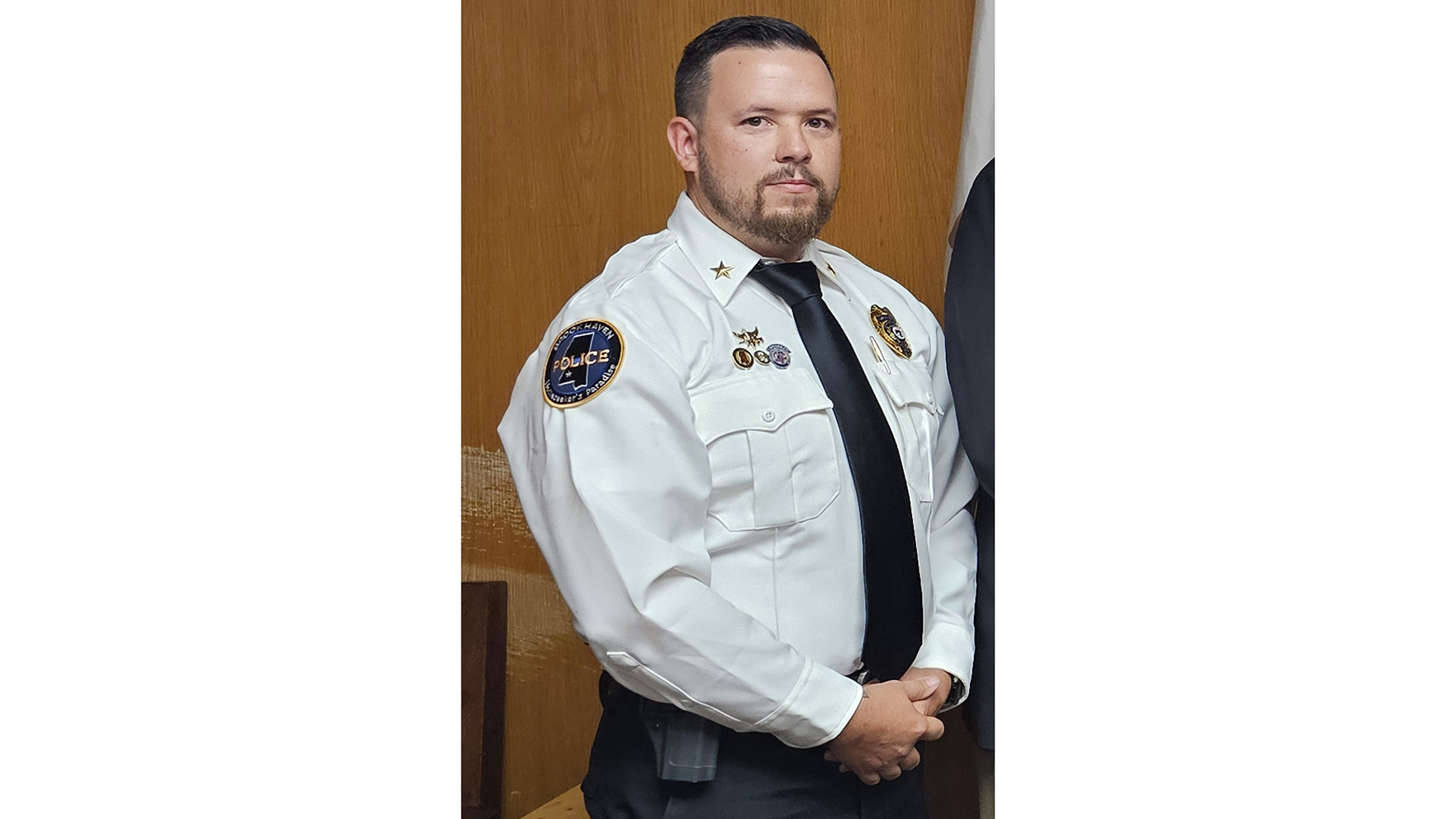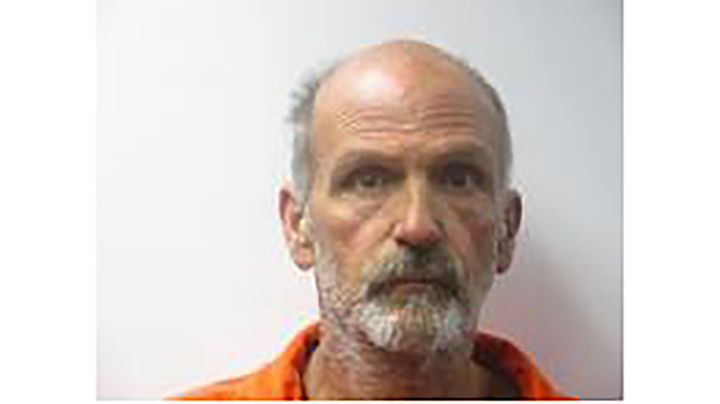Paramedics use app to provide care
Published 8:14 pm Thursday, October 17, 2019

- Photo by Donna Campbell Paramedic Kevin Copeland demonstrates the DrFirst technology King’s Daughters Medical Center is using that allows medical first responders to scan a patient’s six-month medical history prior to arriving to the hospital emergency room. Pictured are, from left: paramedic Anthony Davis, EMT Tia Davis and Copeland.
King’s Daughters Medical Center is leading Southwest Mississippi in a new technology that will help first responders avoid life-threatening drug interactions in emergencies.
KDMC paramedics have been equipped with Backline, an app for in-field access to secure messaging and medication history in a way that complies with federal medical confidentiality and security requirements like HIPAA. Compliance with HIPAA is important to hospitals, but it can make communication difficult in an emergency. The new software will allow KDMC to communicate more rapidly while responding to medical emergencies.
“Protecting patient safety and providing the best care for our patients are our most important goals,” said Lee Robbins, director of emergency medical services at KDMC. “That is why our paramedics are thrilled to have access to patients’ medication history and secure texting with the hospital. These capabilities help them deliver higher-quality, safer care in the field and ensure that the hospital medical team has the information they need to quickly and safely care for their patients.”
The new app allows paramedics to scan the barcodes on the back of a patient’s drivers license, giving them six months of medication history. But, the patient’s medical information isn’t stored by the state that issued the license. The barcode contains the patient’s identification number, which is matched to patient’s medicine records in a vast database Backline maintains through pharmacies nationwide, said Linda Fischer, vice president of product solutions at DrFirst.
Having access to this database allows paramedics to avoid giving life-threatening medicine to patients, and allows the hospital to create patient charts and order tests before the patient arrives at the hospital, even if the patient is unconscious or incapacitated.
“For paramedics, every second is crucial,” said Nick Smith, nurse manager in KDMC’s Emergency Department. “With Backline, our paramedics can safely and securely share data and medical information with our hospital healthcare team. It helps them deliver faster, safer care for our patients upon arrival.”
Patients who have been exposed to blunt force trauma — like a car accident — are often confused and disoriented. Even if they are conscious and answering questions, they may not be able to accurately answer questions about their medical history, said Philip Anast, a spokesman for DrFirst, the company that supplies the Backline software.
“Adverse drug reactions affect more than 2 million Americans every year and are the fourth leading cause of death — ahead of pulmonary disease, diabetes, AIDS, pneumonia, accidents, and automobile deaths,” Anast said.





